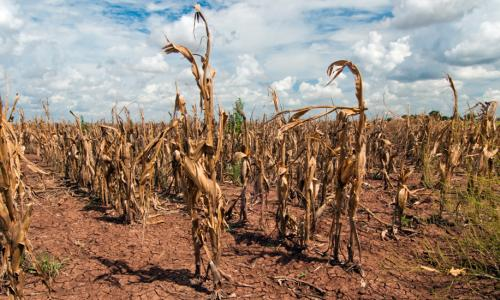Liberia risks severe drought, loss of livelihoods and a wave of rural to urban migration unless the rapid clearing of its rainforests is checked, a ranking member of the Senate warned after a new investigation exposed widespread illegal cocoa expansion across the country’s southeastern borderlands.
An inquiry by the Ivorian NGO Initiatives for Community Development and Forest Conservation (IDEF) found that migrants from Côte d’Ivoire have been clearing hundreds of thousands of hectares of primary forest in Liberia to establish cocoa plantations.
Plot sizes have ballooned from 8–10 hectares per family last year to between 50 and 300 hectares today, the report says.
“The scale of deforestation is colossal,” IDEF Executive Director Bakary Traoré said. “In the localities we visited, all the families had ceded forest plots ranging from 50 to 300 hectares.”
Nimba County Senator Samuel Kogar urged urgent action from policymakers. “Pretty soon we will be losing land,” he said, warning that large-scale cultivation displaces wildlife, degrades the environment and will lead to droughts that undermine farming communities.
“Our people live on farming… We need to look into it so that our citizens will not move to the urban side to embarrass the government.”
Liberia contains roughly 40 percent of West Africa’s remaining primary forests, according to the UN Food and Agriculture Organization. Yet Global Forest Watch data show the country lost 23 percent of its vegetation cover between 2000 and the present, including about 150,000 hectares in 2022 alone — an area equivalent to more than 210,000 football pitches.
The migration of cocoa farmers into Liberia has been driven largely by soil depletion in Côte d’Ivoire, where decades of intensive cocoa cultivation and chemical inputs have diminished land productivity. As farmers seek new land, they are moving into Liberia’s still extensive forest reserves.
Authorities in Grand Gedeh county have registered some 38,000 newcomers working in cocoa production, a figure Traoré says could be three times higher once unregistered workers are counted.
The IDEF investigation focused on border regions where a leasing system known locally as “planté/partagé” is being used to access forest land — arrangements the report says are often unclear, temporary and in many cases illegal under Liberian law.
Beyond environmental damage, the investigation documented probable labor abuses and human trafficking. Thousands of young people — many appearing underage — were reportedly recruited through intermediaries to clear and farm the plantations without contracts or pay, instead being promised future shares by “guardians.”
“What strikes you when you travel along country roads and through villages is the number of young men you see,” Traoré said. “All the young people I met claimed to be 20 or older, despite their particularly youthful appearance. It is highly likely that they were advised to do so by those who brought them here.”
The expansion has inflamed local tensions over land. Land rights in Liberia remain a sensitive issue since the civil wars of the 1990s, and the report says many new plantations encroach on community land and existing concessions. Andrew Y. Y. Zelemen, secretary of Liberia’s National Union of Community Forestry Development Committees, said land grabs have sparked conflicts, including violent incidents earlier this year in Grand Gedeh’s Gbarzon district.
The European Union’s Deforestation Regulation (EUDR), adopted in 2023, could in theory block cocoa grown on newly cleared land from entering European markets: it bans marketing products in the EU that contributed to deforestation after December 31, 2020. But implementation of the law — which requires detailed documentation and geolocation traceability from suppliers — has been repeatedly delayed. On September 23 the European Commission signaled it may postpone enforcement again, from the current December 30, 2025, deadline.
“While Europe dithers and keeps putting off the implementation of its law, there will be no forests left in Liberia and it will be too late,” Traoré warned.
Traceability is a particular concern in Liberia’s border regions, which have weak links to national commercial centers. That creates a risk that cocoa harvested on illegally cleared land could be mixed into Côte d’Ivoire’s much larger supply chain — and thus evade detection — unless cross border monitoring improves. Côte d’Ivoire produces roughly 2.2 million tonnes of cocoa annually, about 45 percent of global output, much of it exported to Europe.
The investigation calls for strengthened cooperation between Liberian and Ivorian authorities, and for intervention by Liberia’s Land Authority, Forestry Development Authority and Ministry of Internal Affairs to halt illegal land leasing, protect community land rights and address labor abuses. The European Union’s delegation in Liberia has already warned that the country’s credibility as a cocoa supplier could be harmed if production continues to be linked to deforestation and exploitation.
If current trends continue, Traoré said, Liberia’s remaining forest cover could be lost within a decade. The experience of Ghana — which has seen extensive forest loss to cocoa cultivation over recent decades — offers a stark warning of what unregulated expansion can bring.


